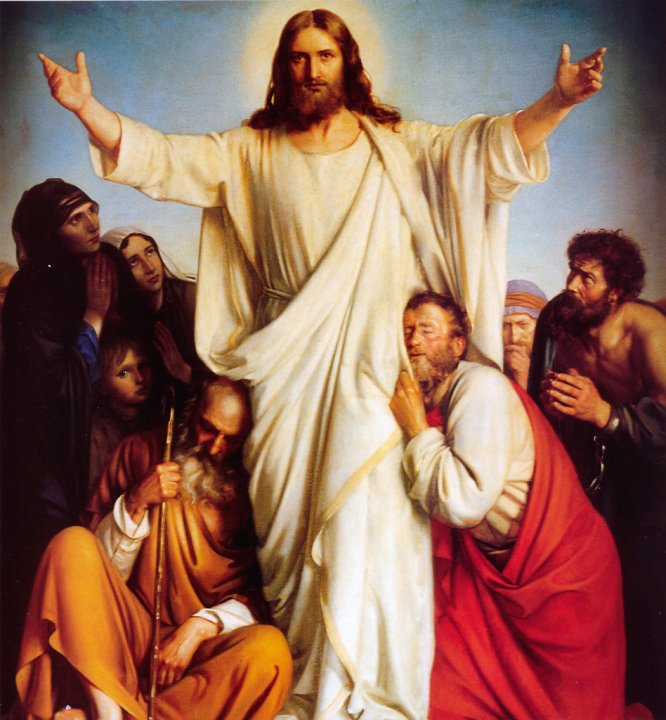FOURTH SUNDAY OF LENT- YEAR-C
I Reading: Joshua 5:9-12: The people of God keep the Passover on
their entry into the promised land.
II Reading: 2 Corinthians 5:17-21: God reconciled us to himself
through Christ.
Gospel: Luke 15:1-3. 11-32: your brother here was dead and has
come to life.
The Parable of the Prodigal Son: The Lost Son, Lk 15:11-24
The parable of the prodigal son is the greatest and most beloved
story ever told in human language. God loves and reaches out to the most
prodigal of men and He runs to embrace any prodigal son who repents and returns
home. God forgives his prodigal son and restores him, no matter how terrible
the sin and failure of the prodigal.
1. He said, “Give me” (v.11-13)
a.
My inheritance
b.
My independence
c.
The result: he wasted his life in wild living
2. He met the day when he
suffered and was in need (v.14-16)
a.
He suffered being destitute
b.
He suffered natural disaster
c.
He suffered humiliation
d.
He suffered hunger
e.
He suffered the loss of friends
3. He came to his senses and
snapped out of his insanity, back to reality (v.17-19)
a.
Thought of his father and his enormous provision
b.
Thought of his plight
c.
Thought of humbling himself:
i.
Of repenting
ii.
Of confessing his sin and unworthiness
4. He got up and returned to
his father (v.20-21)
a.
He repented-turned from his sinful life
b.
He was accepted even before he confessed
c.
He confessed
5. He was accepted when he
returned to the father (v.22-24)
a.
The father restored him
b.
The father fed the son and celebrated his son’s return
c.
The father proclaimed his son’s new life
The Parable of the Older Son: The Self-Righteous Religionist, Lk
15:25-32
The second son or the older son represents the self righteous
religionist-the mortal, the just, the good-the man who has never committed
gross and visible sin. He is religious and does religious works; therefore he
feels and believes he is accepted to God. In this parable Jesus pointed out
five faults with the self-righteous religionist (Lk 11: 37-54; 18:9-12; Rom 2:17-29).
1.
Fault 1: he was in the field away from home (v.25-27)
2.
Fault 2: he shut himself out (v.28)
3.
Fault 3: he was self-righteous (v. 29)
a.
He claimed to be religious
b.
He claimed to be moral and just
c.
He felt he deserved more, that he was not recognized enough
4.
Fault 4: he lacked compassion and understanding of sinners
(v.30)
5.
Fault 5: he failed to see two critical facts (v. 31-32)
a.
He had the same blessings available
b.
His brother was truly saved
Thought: The father restored the prodigal son:
a.
The “robe” restored him to a position of sonship and honour. It
symbolized being clothed with the righteousness of Christ.
b.
The “ring” restored him to a position of authority. The son was
now to represent the father and his kingdom.
c.
The “sandals” immediately restored and elevated him above
servant hood, which means he became a free man. The son was now fitted with
sandals to carry the Gospel of Peace wherever he went (Eph 6: 15).
d.
The “celebration” pictures reconciliation, full acceptance, and
the great joy of the occasion.
e.
The father proclaimed his son’s new life.
i.
He was dead and is alive again.
ii.
He was lost and is found.
